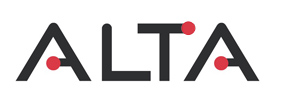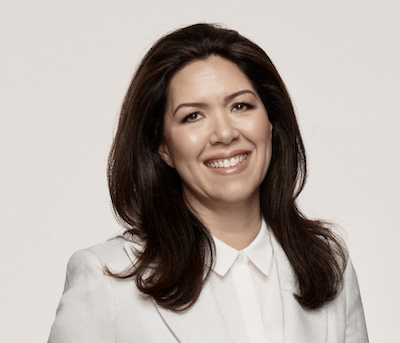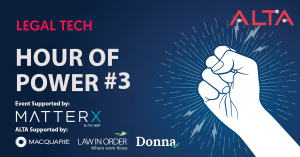ALTA Member Profile | Laura Keily, Founder and MD, Immediation
Tell us a bit about your background.
I spent the first 12 years of my career as a top-tier corporate and transactional lawyer (both in Melbourne at Blakes and Corrs and London at Slaughter and May), as well as time as a company director, In-house Counsel and as a business adviser for blue-chip clients, before becoming a commercial barrister in Melbourne in 2013.
I love making a difference for my clients as a barrister, but it was during this time that I saw firsthand the disadvantages faced by some sectors of the community in accessing the legal system. The cost and lengthy process left it out of reach for many which struck a chord with me. I had witnessed the evolution of technology and how it had transformed other industries, and knew it had big potential for the legal industry to make justice more accessible.
It was this that sparked the idea for Immediation and put me on my journey to becoming an “accidental” startup founder.
Describe a typical day in your life as a founder/practising barrister.
As both a founder/MD of a rapidly growing startup, and a practising barrister, I’m wearing two hats most days, which means I’m often working a varied schedule, and odd hours but aim to have one day off on the weekend to recharge.
A typical day could involve a visit to the gym or an early morning international call followed by a stand up meeting with our executive team which I might do in the car on the way in. Most days I will have at least one or two planned external meetings in person or by video e.g. with a potential investor, client or journalist. Usually I then try to do some drafting, either for my practice or for the business. Throughout the day there are usually many calls both planned and unplanned and I will try to fit smaller tasks in and around those. Generally calls get a little quieter after 6 and I will try to finalise whatever documents are due out and then head home around 7 or 8. Often I will do significant legal work tasks on the weekend.
As the MD of Immediation, I’m hands-on in most aspects of the business from operations, to sales and improving our tech platform. It means my days could be spent working with courts and tribunals to implement the platform in courtrooms, and ensuring mediations are running smoothly, working alongside our tech team to ensure the platform continues to serve the specific needs of the legal industry, and demonstrating the platform to law firms. I am also engaged in capital raising, corporate transactions and media relations. Every day is different and interesting! Just like the world we’re in – it’s constantly changing but exciting nonetheless!
Looking back, when and where do you think the Immediation journey first ‘began’?
Coming from the ‘win-win’ background of doing deals, and moving into the litigation environment, I was blown away by how difficult, expensive and impenetrable the current process was for so many clients.
In early 2017, I had been thinking for about 6 months about why there was no better process that utilised technology and video conferencing together with fixed price resolutions. It seems strange post-2020 but back then no one in my space was talking about online! I had designed an early prototype “app” of what would become the Immediation platform, received a quote to build it and had been offered a very small amount of investment.
Of course I felt fear. But I also thought: ‘if I don’t do this, who will?’. There was a specific moment I decided to proceed and it was hearing Justice Michelle Gordon talking to the junior bar at a conference in early 2017 and encouraging us to build technology solutions for the benefit of the community. I took out my phone and paid the deposit on the platform build!
Immediation has achieved some major milestones, including a recent round of funding – well done. How did you find the process of convincing investors and others of its value in the early days?
Immediation solves a very real problem, and investors could see this easily, which made the process more straightforward once I learnt how to pitch effectively. It was very hard at first. It helped that I did not wake up one day and “look for a problem to solve to become an entrepreneur” – the opposite was the case. I would have been happy carrying on as a barrister but felt an obligation to do something about access to justice once I realised I could.
I raised together with other early shareholders the first $500,000 quite easily in 2017. Once we got to require significant amounts of money it was of course bordering on impossible to raise in the early stages! We raised slowly over 3 years prior to COVID once we had found the right group of investors based in Perth.
Having the Federal Court and others as customers also helped to demonstrate the long-term viability of the company. This really helped us with our most recent raise which was backed by Thorney Investments. A big part of their decision to invest was my career as a lawyer, and having an in-depth knowledge of the sector. This level of expertise gave investors an added level of confidence that they were investing in a company that was addressing a critical yet unique problem in a way that would work for the industry and be a long-term successful business.
Australia is a relatively small market when compared to the rest of the world. Where do overseas markets sit on your priority list – and what are your tips on growing globally out of Australia (if any)? What challenges have you come across (if any)?
We do have big goals to expand globally. We recently acquired Kiwi online dispute resolution business, CODR, and the founder, Michael Heron QC (former NZ Solicitor General) has stayed on as Chairman of Immediation NZ – which gives us a strong foothold in the market. We’re already working with two NZ government departments/agencies.
We also have our eyes set on the US market via channel partners.
At the end of the day, we have found that overseas expansion – any expansion, in fact – is contingent on finding the right trusted partners.
We also see considerable opportunity in the international arbitration space. COVID has halted international travel, so the old world of physical arbitration centres simply no longer works. Disputes are on the rise so corporations and law firms need an alternate solution: our platform is that solution.
Entrepreneurship can be incredibly rewarding – and challenging. Looking back, what do you believe is the most important skill or quality for a founder’s success? Are there any other qualities you’d encourage a founder to develop?
Success can be found if you have a really sensible solution to a genuine problem, that no one has discovered before.
One of the key things I’ve learnt as a pathway to success is serious tenacity. You have to keep going. Also authenticity. Your investors, suppliers, partners and customers – when you eventually launch – can see right through falsities. You’ll have their support if they believe in you as a founder, so I encourage fellow entrepreneurs to find and lead with their authentic voices.
You’re about to go back in time to give yourself one piece of advice. What do you say to your younger self and when?
Know that you can do it but you have to be prepared for a life of uncertainty. Be open and ready for constant change – one of the things I’ve learnt from the past is that transformation is possible when there is a clear, demonstrated need. Being open to, and ready for never-ending change and risk is an important part of readying yourself to starting a business.
What are 3 things you will be focusing on this year?
Expanding internationally — we see huge potential for Immediation to help to alleviate the backlog of cases courts are facing around the world to provide an alternate path to dispute resolution, and ultimately make justice more accessible to all. It’s why international expansion will be a big focus for us this year. We’ve already made good headway in NZ, but there is much more to be done.
Improving the platform — our platform is purpose-built for the complex nature of the legal industry — it’s what makes Immediation unlike any other generic video conferencing. We want to continue to improve our platform and turn it into a subscription offering for lawyers as well as courts, so this will be another focus of ours this year.
Educating the market — a huge part of what we do is continuing the conversation and education around how the legal system can be reformed for the better, in large to ease the burden on the system itself, and support small businesses and individuals in achieving justice.
Where can we stay up to date with what you’re doing?
You can follow our journey on our website and also our LinkedIn page.




